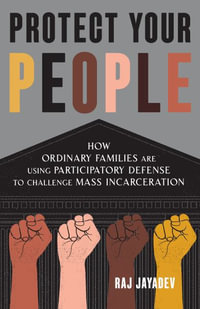Buy a new version of this textbook and receive access to the Connected eBook on Casebook Connect, including lifetime access to the online ebook with highlight, annotation, and search capabilities. Access also includes an outline tool and other helpful resources. Connected eBooks provide what you need most to be successful in your law school classes.
Dispute Resolution: Beyond the Adversarial Model, Third Edition provides a comprehensive look at the current state of ADR. For each area of Negotiation, Mediation, Arbitration, and Hybrid processes, the text incorporates four key aspects: the theoretical framework defining the process; the skills needed to practice it; the ethical issues implicated in its use and how to counsel users of such processes; and legal and policy analyses, with questions and problems within the text.
New to the Third Edition:
- A shorter, more compact book designed to be student-friendly
- Exercises and discussion problems throughout
- Designed for one chapter to be covered each week of a typical ADR course
- The latest on Online Dispute Resolution, Dispute System Design, Supreme Court decisions on arbitration, and empirical work on mediation and negotiation
Professors and students will benefit from:
- Comprehensive, current coverage. The theory, skills, ethical issues, and legal and policy analyses relevant to all key areas of contemporary ADR practice--Negotiation, Mediation, Arbitration, and hybrid and multi-party processes and their appropriate uses--are thoroughly covered using a rich range of up-to-date cases and readings.
- Authored by the leading scholars and teachers in the field of Dispute Resolution. The authors are award winning and recognized for their scholarship, teaching, practice, policy making, and standards drafting throughout the wide range of particular ADR processes.
- Practical approach to problem-solving. The text engages students as active participants in resolving human and legal problems, using individual or combined resolution processes in varying gender, race, and cultural contexts.
International and multi-party dispute resolution. These important, high-interest contexts and applications are thoroughly covered in discrete chapters. - Readings balance theory and theory-in-use. Readings include cases, behaviorally and critically based articles, examples, empirical studies, and relevant statutory and other regulatory material to illuminate the challenge of balancing rules and laws with the economic and emotional constraints inherent in disputes.
- Challenging, relevant readings. The text includes a wide range of perspectives, from Fisher, Ury, and Patton's Getting to Yes, Raiffa's Art and Science of Negotiation, and materials on modern deliberative democracy, group facilitation and decision making, counseling clients about uses of ADR, enforcement of negotiation, and mediation agreements. Key cases include AT&T v. Concepcion and other recent Supreme court cases on arbitration.
Teaching materials include:
- Numerous role-plays and simulations for skills development
- Suggested teaching exercises, syllabi and "answers" to problem boxes found in text
- Recommendations for supplemental materials, such as videos and transcripts
- Examination and paper suggestions for each chapter
![Dispute Resolution : Beyond the Adversarial Model [Connected Ebook] - Carrie J. Menkel-Meadow](https://www.booktopia.com.au/covers/big/9781454852025/0000/dispute-resolution.jpg)























